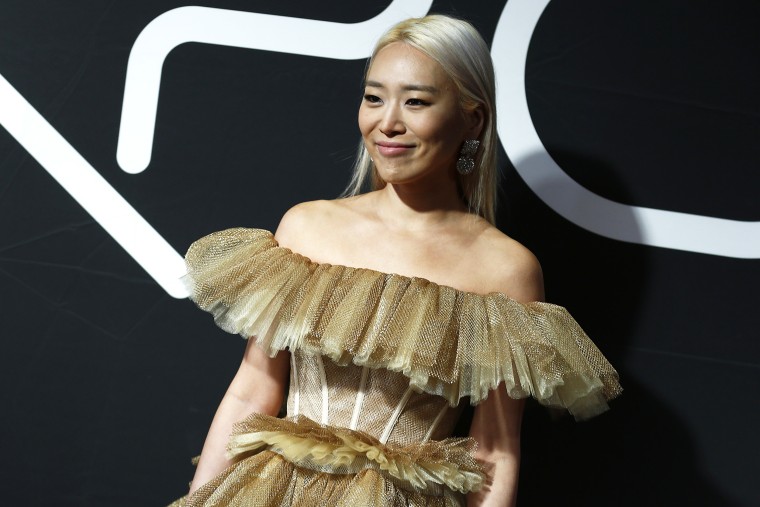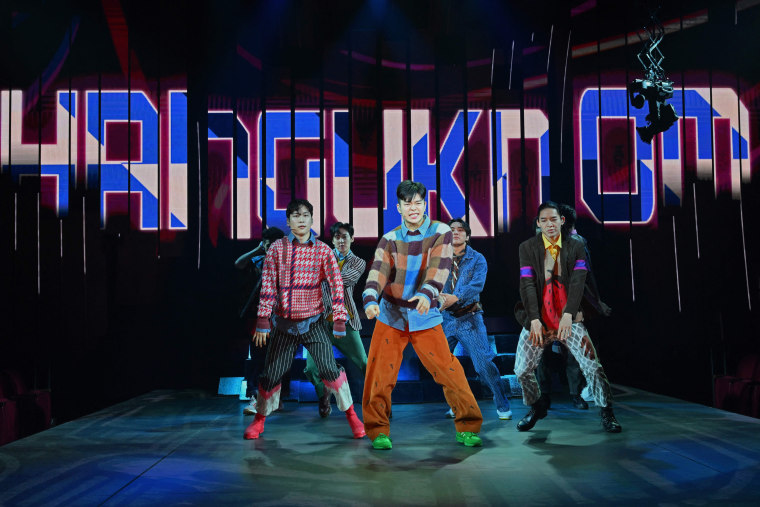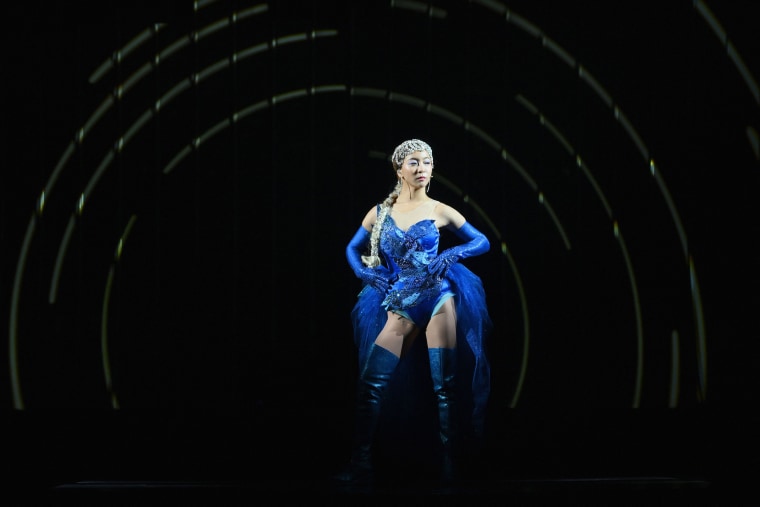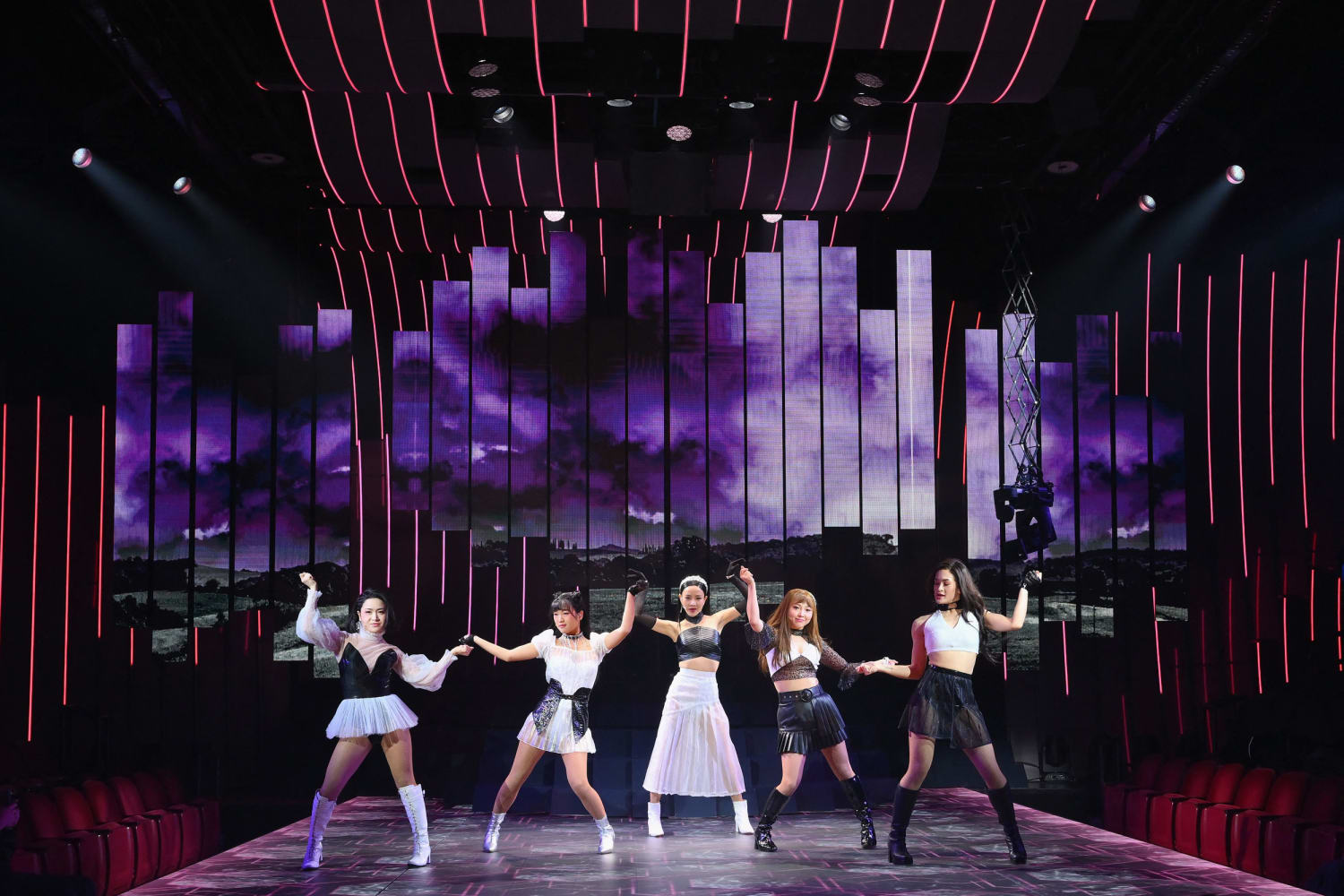John Yi, an actor in the Broadway musical “KPOP,” gathered with the cast and crew just hours before showtime last Tuesday to get some devastating news: Just two weeks after the show’s opening, it was ending.
The production was the first on Broadway to tell a Korean story, written by Korean creatives, centered on one of the most popular forms of music in the world. Yi and his colleagues couldn’t help but wonder if they had been given a fair shot.
Cast and crew members detailed to NBC News the cascade of events that led to the show’s short run. Despite the fervent last-ditch efforts to keep it alive, they describe how a confluence of financial struggles and marketing obstacles, compounded by an industry that hasn’t been historically inclusive toward those of Asian descent and their stories, contributed to the show’s demise.
“We started a fire of a real change and good that can happen on Broadway,” said Helen Park, whose work on the show made her the first Asian female composer on Broadway, “and we still had to quickly turn it off.”

Yi, who plays Danny, a member of the K-pop boy band F8, said he had expected to do the show for a minimum of six months.
“It felt like we weren’t given even enough time and opportunity to be able to share the gift of that show with the world.”
The show’s producers said in a statement that they were “disappointed” that the show didn’t have a longer run.
“We are filled with pride when we think of what the cast and creative team accomplished and the history they made,” the statement read. “We look forward to the day when AAPI representation is a given and not the exception.”
“KPOP” follows three K-pop acts as they wrestle with cultural and personal dynamics that complicate their lives before a monumental, one-night-only concert. The three involved in the production who spoke to NBC News said the show struggled to keep its head above water financially. Seonjae Kim, the associate director, said sales dipped lower than projected levels. And the low sales were evident during the previews, when the show was still working out the kinks, experimenting and solidifying its final version before the official opening.

As the show went on, Kim said, there was insufficient funding to pay the theater, cast and crew and fund other aspects of the production. And Covid-19 illnesses among some cast members canceled some previews, which were almost sold out, Kim said.
“That impacted our revenue,” Kim said. “I think that just hastened our closing, because that’s a lot of cash lost.”
And unlike typical shows that often get to run and receive feedback out of town before they open on Broadway, “KPOP’s” tryouts, which had been scheduled to occur in Virginia last winter, were canceled in part because of the previous surge of the omicron variant of the coronavirus. And that put a strain on its finances.
“Because we didn’t have an out-of-town tryout, we were relying heavily on word of mouth for the show to sell and for people to continue to come see the show,” Yi said. “And it just did not catch up fast enough with the economics of how much it costs to run our show.”
Kim said the canceled tryouts meant the show was given a longer preview period, which in turn hiked operating costs before it officially opened.
Park and Kim pointed to marketing as a potential reason for the low ticket sales, as well. Park said the show went with a traditional Broadway-focused marketing company. Asian Americans and the youthful, diverse crowd that the production had hoped to reach aren’t historically the demographics that shows try to attract. And so, Park said, there was a disconnect between what the show represented and what its marketing reflected.
Kim said the “built-in” Broadway audience also wasn’t reached by the show’s marketing.
“They’re going to things that have already been running and doing well,” Kim said. “And they’re not really going to see ‘KPOP’ because maybe it’s ‘weird.’ Maybe it’s ‘too foreign’ and the marketing is confusing, because you see a poster with a bunch of Asian people and it says ‘KPOP’ — you’re like: ‘What? Are they a real group? Is it a musical? Is it a concert? Are you promoting an entire genre?’”
The show’s marketing agency, Spotco, didn’t respond to a request for comment

In many ways, the show was up against historical and systemic barriers that Asian Americans have faced in theater and on Broadway. According to a study by the Asian American Performers Action Coalition, roughly 6.3% of roles in the 2018-19 season, the final season before the coronavirus shutdown, went to Asian Americans. Positions of power in the industry overwhelmingly lacked diversity, with 93.8% of directors, 93.6% of producers and 92.6% of designers being white, the study showed.
Many Asian-centric narratives on stage, Park said, were written by white men, citing plays like “The King and I” and “Miss Saigon.” And those narratives, often packaging Asian cultures as exotic fantasies, are more “comfortable” to mainstream audiences compared to “KPOP,” a contemporary musical.
“Americans in general are so used to seeing Asians as exotic and different,” Park said. “We all talk about the same things, like relationships, breakups, gossip. I go through the same thing that MwE, our main character, goes through, contemplating how I can be an artist and a human. … And I think that is very jarring to theatergoers.”
Kim said, “A lot of them need to be more open-minded, and a lot of them need to be more actively anti-racist.”
Some of the show’s reviews didn’t do any favors, Kim said, and reflected a lack of openness toward their art. Kim cited the review from The New York Times’ Jesse Green, which has drawn backlash for what some read as cultural insensitivities, such as saying fans had to understand Korean to enjoy it or using phrases like “squint-inducing lighting.” The show’s producers also published an open letter to Green, accusing him of “an underlying ignorance of and distaste for K-pop as a genre, and what comes across as casual racism.”
Green did not respond to a request for comment but deferred to a statement from The Times that addressed the criticism.
“We wholly disagree with the argument that Jesse’s criticism is somehow racist,” the statement read. “We always welcome feedback and reaction to our journalism, and have conveyed a similar reply to the producers who wrote the open letter.”
For many involved, the show’s potential was reflected in some of the last performances. The Twitter campaign #SaveKpopOnBroadway gained momentum over the last few days, and cast and crew members tried calling in favors to extend the show’s run. Fans, sometimes repeat audience members, packed the house.
“We all started realizing that we — especially the Koreans and the Asians — that this is in our hands, as well,” Park said. “We were going to try and save the show.”
The show closed on Sunday and currently, the future of “KPOP” is still uncertain. The possibility of a Las Vegas residency and a tour have been floated since it closed. For now, a cast album will come out in February, and Park said she is working on having the show archived as part of Broadway history. Those involved hope the show serves as a sign that there’s far more progress to be made in the industry.
“What needs to be done to give productions like ‘KPOP’ a first shot is genuine curiosity and reverence for unfamiliar cultures and stories,” Yi said. “As consumers, I think we are very, very used to familiarity. And so I hope the legacy of our show pushes Broadway audiences to open up their minds to stay curious and interested about stories and cultures that are not of their own.”
Source: | This article originally belongs to Nbcnews.com










